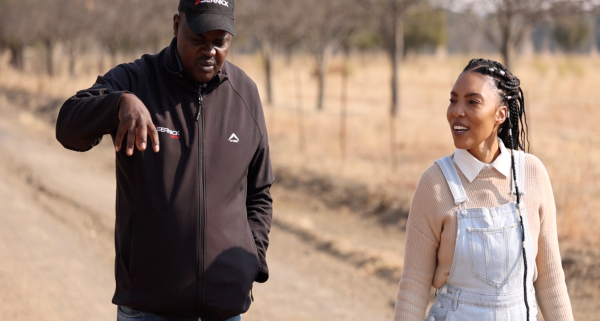Up close and personal with Patrick Sekwatlakwatla – African Farming
1. What is the best advice you have ever been given?
Love what you do and do what you love. I’m a product of commercial farmers of South Africa and every farmer I have worked with has told me to do everything with love and passion if I don’t want to fail.
2. If there is one thing you could have done differently, what would it be?
We should have targeted more women earlier in the project. Women are doing very well and for the past years, the best performers and award winners, internally and externally, have been women.
3. What has been your single biggest success to date?
To be in the position I am in now and to be working with the best farmers in the country, like Nick Serfontein. Being able to make a positive impact on the development and building of this country.
4. Who has made the biggest contribution to your success?
Nick Serfontein has made the biggest impact. He empowered me and he treats me as a partner, rather than just as an employee. He has let me grow independently, supported my own business ventures and helped me to develop my own community.
5. What kind of relationship do you have with your neighbouring farmers and what role have they played in your success?
I have a good relationship with all the farmers I work with. We have developed relationships that go beyond those of just colleagues or mentors. I have become a brother to many of the farmers, especially those that are part of the project and those I have worked with back in the day when I was with Obaro.
6. If there was a single piece of advice you could give the minister of agriculture, what would it be?
I would strongly suggest that she make more funding available for development, and that her ministry encourages and supports private/public partnerships.
7. How important is organised agriculture?
In all honesty, I think these groups are quickly losing relevancy because they are drifting away and losing touch with farmers. They are mostly pursuing political agendas instead of focusing on the farmers and the issues that affect them.




Leave a Reply
Want to join the discussion?Feel free to contribute!